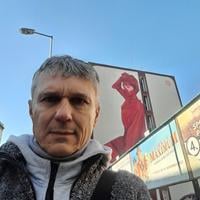One of my students once called the large statue standing at the entrance of New York harbour, representing a female figure carrying a book of laws in one hand and a torch in the other, the Statue of Freedom. Most of you certainly know it is called the Statue of Liberty. It was a gift from the people of France and stands on Liberty Island (not on the Island of Freedom).
Another student called the largest ocean the Quiet Ocean, but the fact is that it is called the Pacific Ocean or the Pacific for short. (The adjective pacific is used especially in a literary style in the meaning of peaceful or loving peace.) The smallest ocean is called the Arctic Ocean, not the North Ice Ocean or anything like that. The names of other two oceans, the Atlantic Ocean and the Indian Ocean, shouldn't cause any problems.
Speaking of the Indian Ocean, I'd like to remind you that an Indian is either a person from India or a Native American/Canadian. (When Columbus came to America, he thought he was in India at first - that's why he called native Americans Indians.) An Indianan is a resident of Indiana, a state in the USA. An Indian summer, my favourite period of the year, is what we could literally translate as a Hag summer (babie leto; a hag - an ugly and/or unpleasant old woman), i.e. a period of dry warm weather in the autumn (also a period of success and/or improvement, especially later in somebody's life).
Games often have different names in English and our languages. How would you translate the name of the children's game in which a player whose eyes are covered with a piece of cloth tries to catch and identify the other players (slepá baba)? How about a blind hag? Interestingly, the opposite sex is the part of the English name - it is called blind man's buff/bluff (UK/US).
What should we call another popular game človeče, nehnevaj sa? A certain bilingual dictionary translates it as ludo (BrE) / Parcheesi (AmE), which a monolingual dictionary defines as a game played with dice and counters on a special board. I'm not sure, though, if it is exactly the same game as our Man, don't be angry (I'm too lazy to find out). A certain article claims its English name is Sorry, but you cannot find anything like this in monolingual dictionaries.
Schools and companies sometimes invite people to visit their premises in order to see the work that is done there. A certain university called such a day The Day of Open Doors on their website, which is a word-for word translation of our name for this special event. In English, it is normally called an open day (BrE) / open house (AmE).
If you read horoscopes (I don't - I don't trust them at all and think they are silly), you may be interested in what the signs of the zodiac are called: Aries (the Ram), Taurus (the Bull), Gemini (the Twins), Cancer (the Crab), Leo (the Lion), Virgo (the Virgin), Libra (the Scales), Scorpio (the Scorpion), Sagittarius (the Archer), Capricorn (the Goat), Aquarius (the Water Bearer/Carrier), and Pisces (the Fishes).
Sometimes there is a need to translate Czech/Slovak proper nouns into English, but the attempts are not always entirely successful. Only the most important names have their established English counterparts, e.g. Praha - Prague, Dunaj - the Danube, Vysoké Tatry - the High Tatras, Komenský - Comenius, etc. I went hiking in the Carpathian Mountains the other day and read an information board full of mistakes. I especially noticed the English version of a castle's name: Smolenický castle. The author of the translantion didn't realize that English nouns have only two cases - the common case and the genitive (possessive) case, and he/she should have kept the name Smolenice in its base form - Smolenice Castle. Similarly, students sometimes use names of our streets incorrectly, e.g. Koniarekova Street instead of Koniarek Street, or Street Juraja Fándlyho instead of Juraj Fándly Street. Another point is that all words except articles, prepositions, pronouns and determiners usually begin with a capital letter in names of institutions, geographical names, etc. (That's why I capitalized Castle and Street in the above examples.)
Here is my final piece of advice - if you are not sure how to translate a proper name correctly into English or whether it should be translated at all, the safest way is to keep it Slovak. No harm is done this way.






